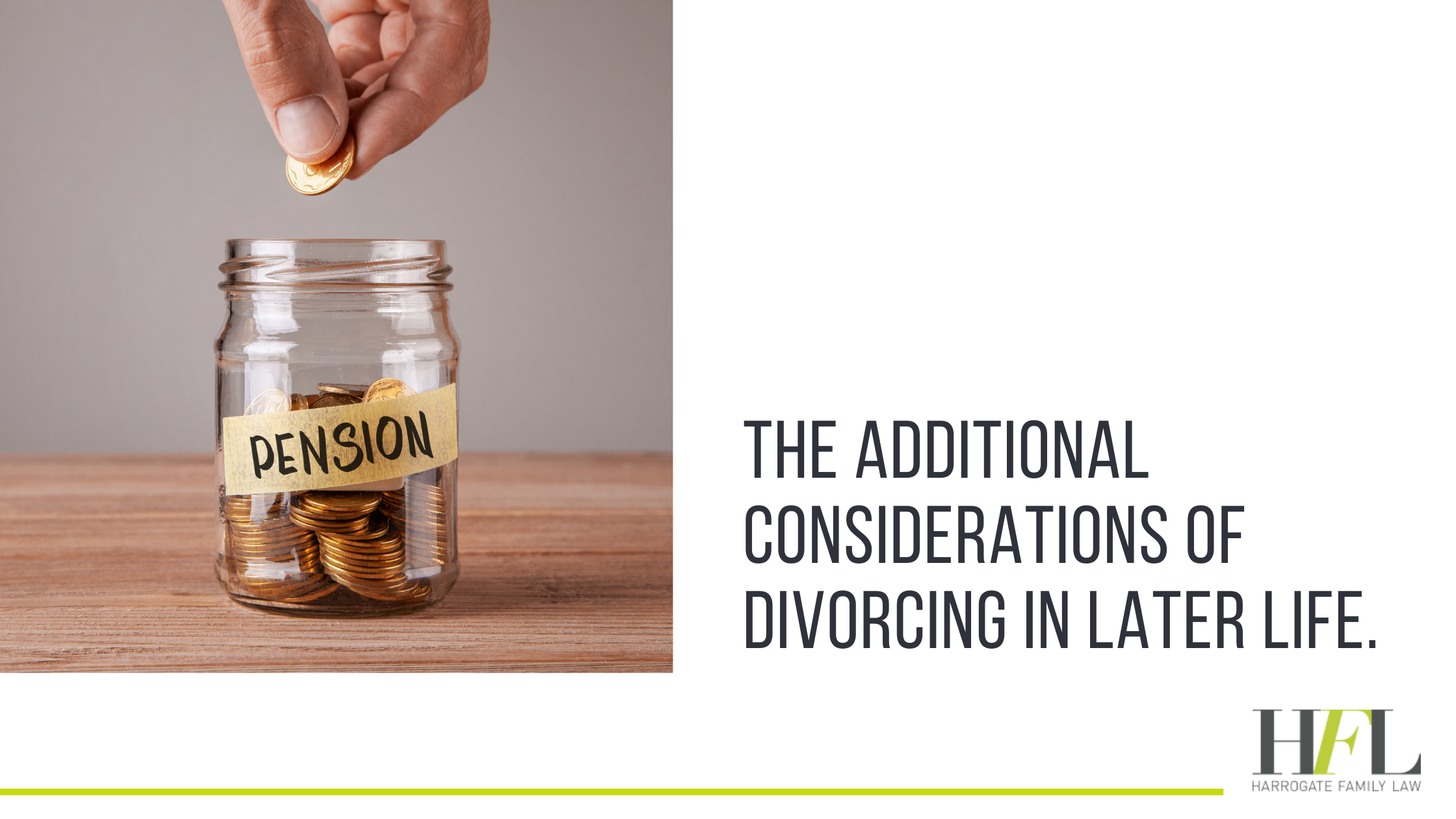Whilst divorce at any age can be a traumatic and unsettling experience, those who come to this decision later in life can often face some additional and unique challenges.
In this week’s blog, we’re exploring some of the factors that need to be considered when looking to the future as an older divorcee, from the emotional toll it can take to negotiations around finances.
Leading a trend
Typically referring to those over the age of 50, ‘grey divorce’ is on the increase. According to data from the Office of National Statistics, the decade between 2005 and 2015 saw a 38% increase in the number of women, and a 23% increase in the number of men, divorcing over the age of 65.
As societal norms change, an increasing number of people are reluctant to remain in an unhappy marriage simply because they believe it’s the right thing to do or because society expects them to.
But what do you need to consider when you’re divorcing in later life?
A lifetime together
When you’ve spent a significant portion, and in some cases most, of your lives together, adjusting to the change can feel more than a little overwhelming. There are looming worries and fears about finances, especially since there are fewer opportunities to rebuild your financial security to secure a standard of living that you might be accustomed to.
In addition, social circles are often interchangeable, and the thought of going it alone can be daunting. Many people worry about loneliness and isolation following a divorce, and it’s vital to have things in place to ensure that the future looks as positive as possible. You can read our thoughts on that here.
Pensions
Pensions are a crucial consideration during any divorce. How they’re dealt with during negotiations and proceedings can be particularly pertinent for women because of the so-called ‘gender pensions gap’.
A recent report from the Pensions Policy Institute revealed that the average pension pot for women at age 67 is £69,000, compared to £205,000 for men of the same age. This disparity is partly due to many women taking career breaks to raise children, which affects their employability and limits their ability to contribute to their pensions.
Why do pensions matter?
Sometimes, pensions are an extremely valuable asset – often more valuable than the family home. Despite this, however, many women focus on their desire to keep the family home in exchange for ignoring their spouse’s pension.
Ultimately, though, this isn’t a decision to be made lightly or without legal advice. Here at Harrogate Family Law, for example, we’ve helped many of our clients to secure both a share of their spouse’s pension as well as keeping the family home.
For women facing divorce in later life and who choose to disregard the issue of pensions, the stakes are high. Pension provider Scottish Widows estimates that they could miss out on around £77,000 for their pension pot as they head into retirement. Add to this the fact that, as a general rule, women also have a smaller savings pot, and many women in this position find themselves looking at an uncertain financial future.
There have been numerous calls for law reform that would ensure a fairer division of pensions on divorce, and whilst we’re definitely seeing some progress, it’s still an issue very much in flux.
Finances in general
For couples divorcing in later life, with any children from the marriage having grown and flown from the nest, finances tend to be the most significant source of contention. With no dependents to consider, any final financial settlement is likely to come closer to an equal split.
However, there are things that will need to be considered, including whether or not one or either of the parties has been married before. There may be a prenuptial agreement in place, for example, or a question mark over what constitutes a marital asset and what doesn’t (this can be a complex issue to resolve, especially if either of the parties has had the benefit of an inheritance or a financial settlement from a previous relationship).
The only certainty is that expert legal advice, along with full and honest financial disclosure, is a must when negotiating a settlement. Divorce in later life can bring with it a number of complex issues, and having a supportive legal team in your corner is a must.
If you’d like to discuss this or any other family law matters, get in touch to speak to a member of our team.






